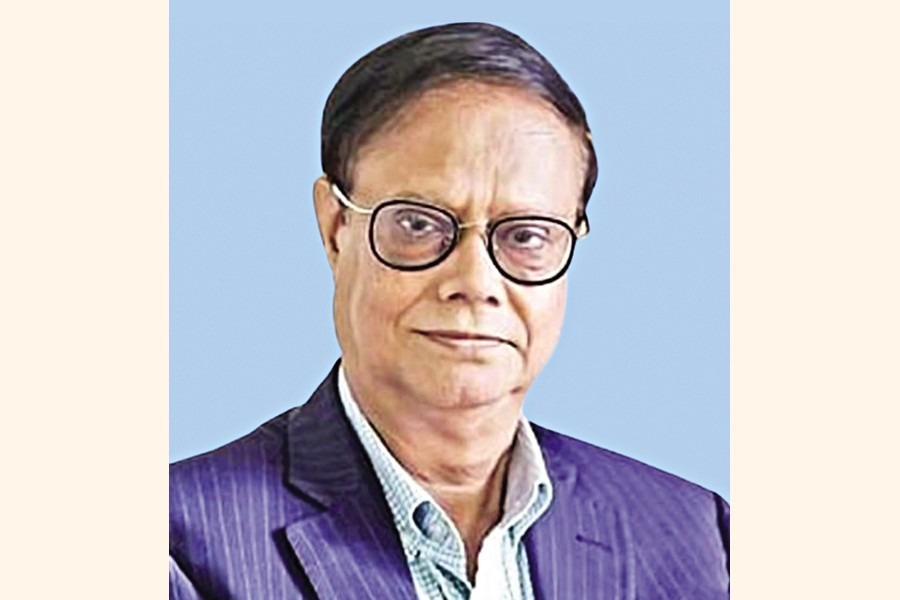Bangladesh central bank chief warns financial sector is in 'serious risk'

Published :
Updated :

Bangladesh Bank Governor Ahsan H Mansur has warned that the country’s financial sector is in “serious risk”, stressing the need for urgent measures to stabilise banks, control inflation, and expand financial literacy.
On Wednesday, Mansur said the government was taking initiatives to improve the sector.
“First, inflation must be controlled. Without stable prices, nothing else is possible. Second, financial stability must be ensured, which is currently in serious jeopardy,” he said.
He acknowledged the fragile state of the banking system and ongoing economic challenges.
“We all know the country’s development status and the banking sector’s vulnerable condition. We have a plan to stabilise it, which may take three to four years to implement step by step. It is possible, and we will do it,” he said, adding that financial innovation and education were the third priority area.
The banking sector’s troubles became stark after the July Uprising that toppled the Awami League government.
The central bank disclosed evidence of irregularities, fraud, and politically influenced loan scams that siphoned billions abroad, prompting panicked withdrawals and exposing hollow balance sheets at several banks.
Analysts note the crisis stems from decades of weak governance. State-owned banks were the first to be crippled by default loans and corruption, followed by private banks, but successive governments failed to act decisively. Reforms remained on paper, with little impact.
Even before the Awami League’s fall, the economy was strained. The budget for the fiscal year 2024-25 was announced in a fragile environment, which worsened with July–August unrest, unprecedented instability, and a collapse of business confidence.
The interim government has since struggled to restore stability.
Mansur said Bangladesh must strengthen its own financing capacity as foreign aid’s share in GDP declines. He pointed to chronic revenue shortfalls, urging the government to focus more on collection.
“Bangladesh is not performing well in revenue mobilisation. Other countries are ahead of us. India collects 18–20 percent of GDP, Nepal over 20 percent. Why should we lag?” he said.
The governor criticised strikes by National Board of Revenue staff, saying they sought to preserve privileges rather than reform. He argued that expanding domestic revenue and tapping foreign financing, including through private sector inflows and capital markets, were essential for long-term stability.


 For all latest news, follow The Financial Express Google News channel.
For all latest news, follow The Financial Express Google News channel.